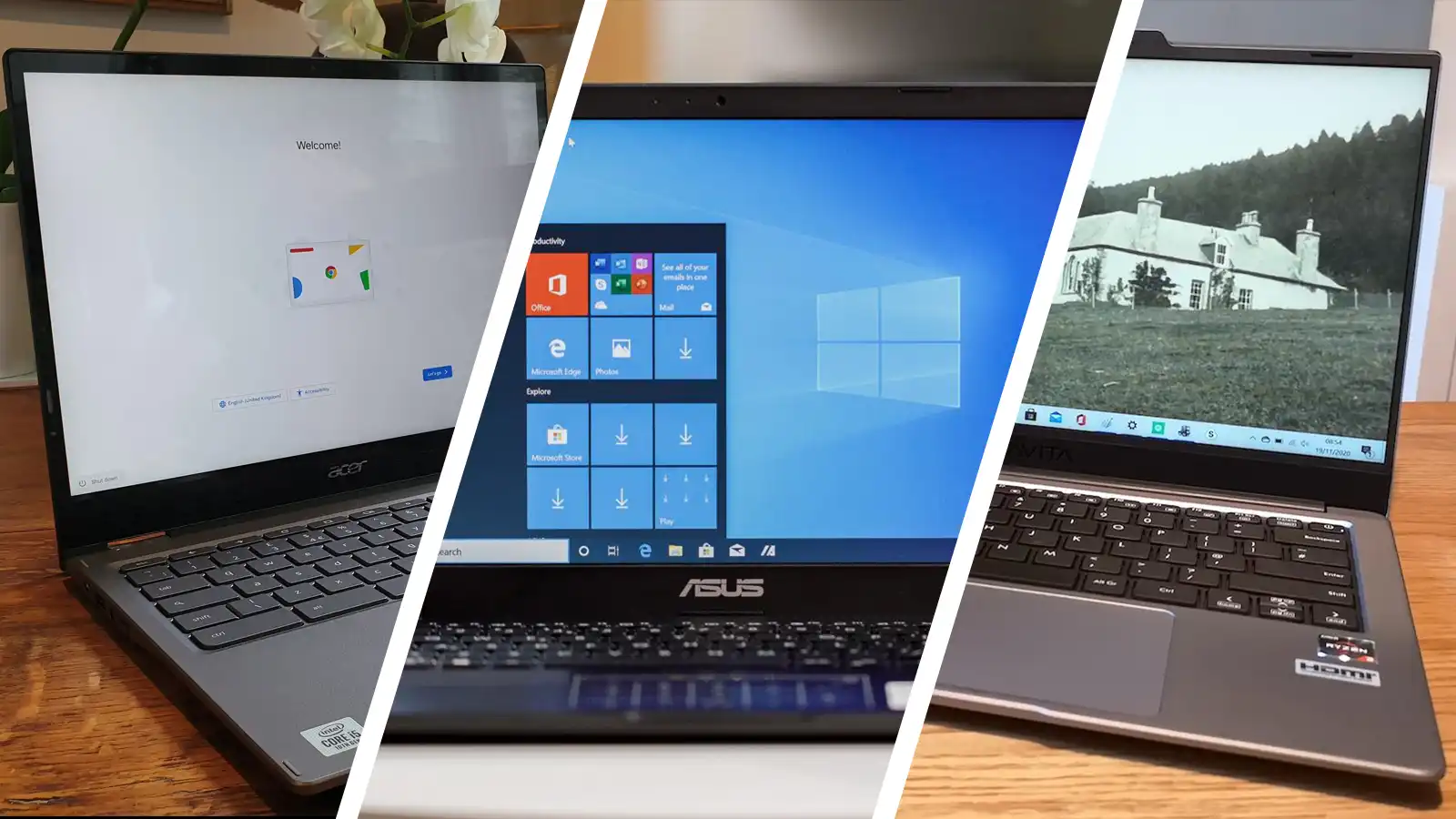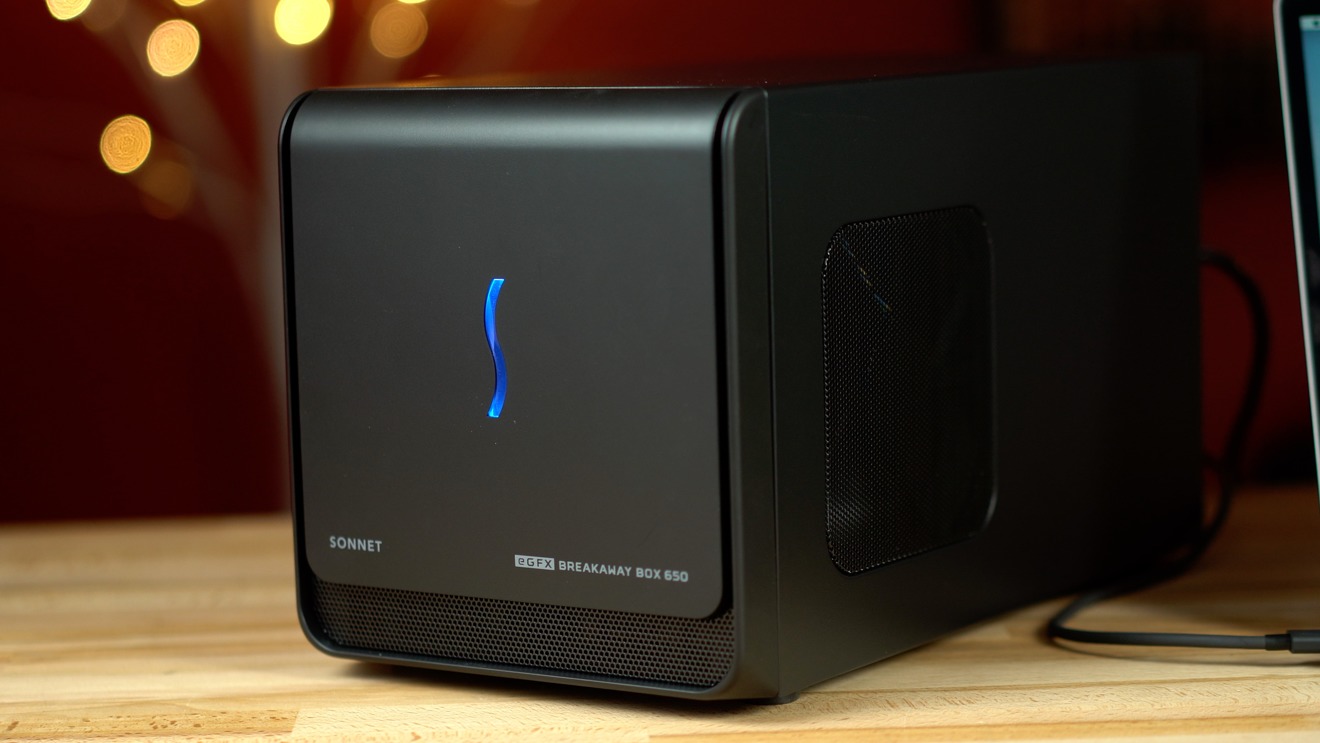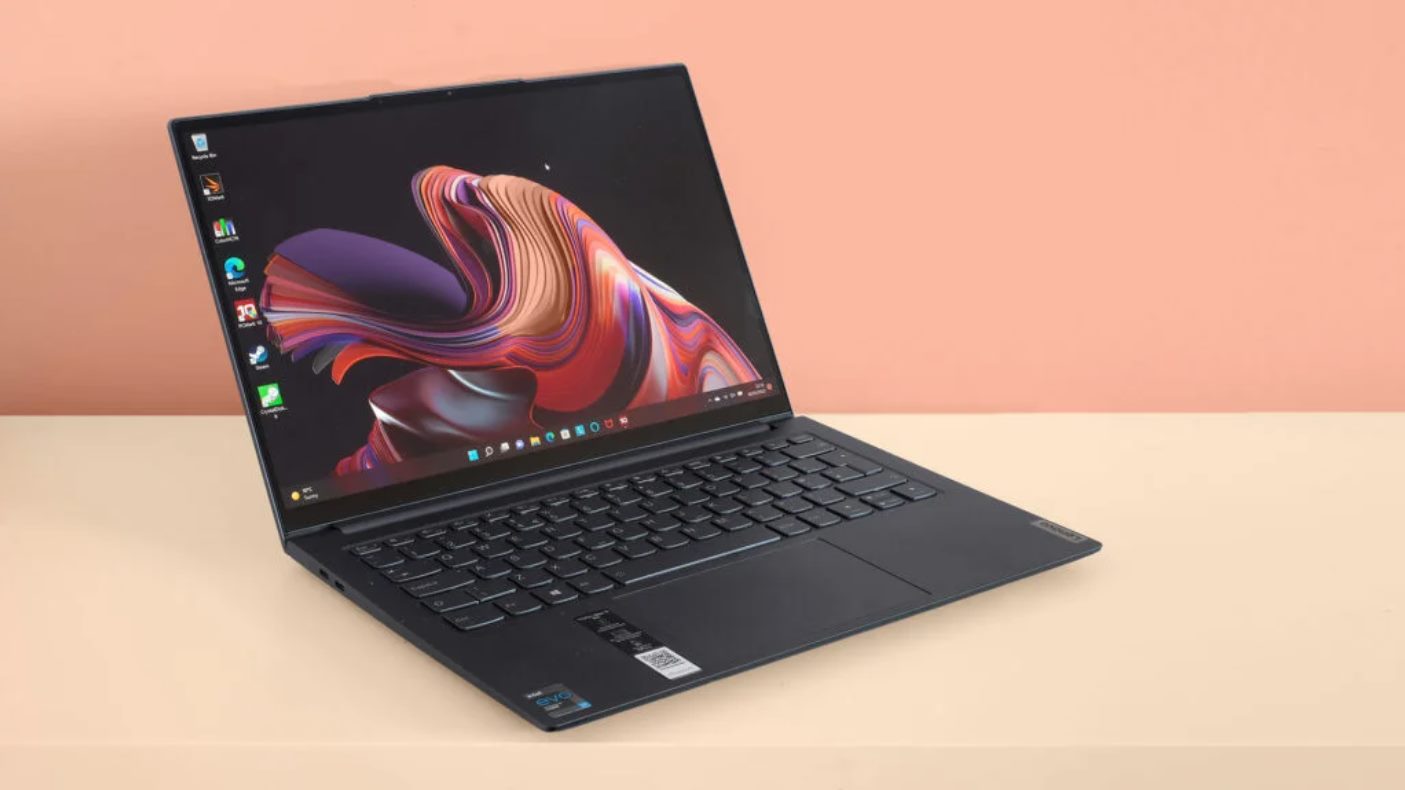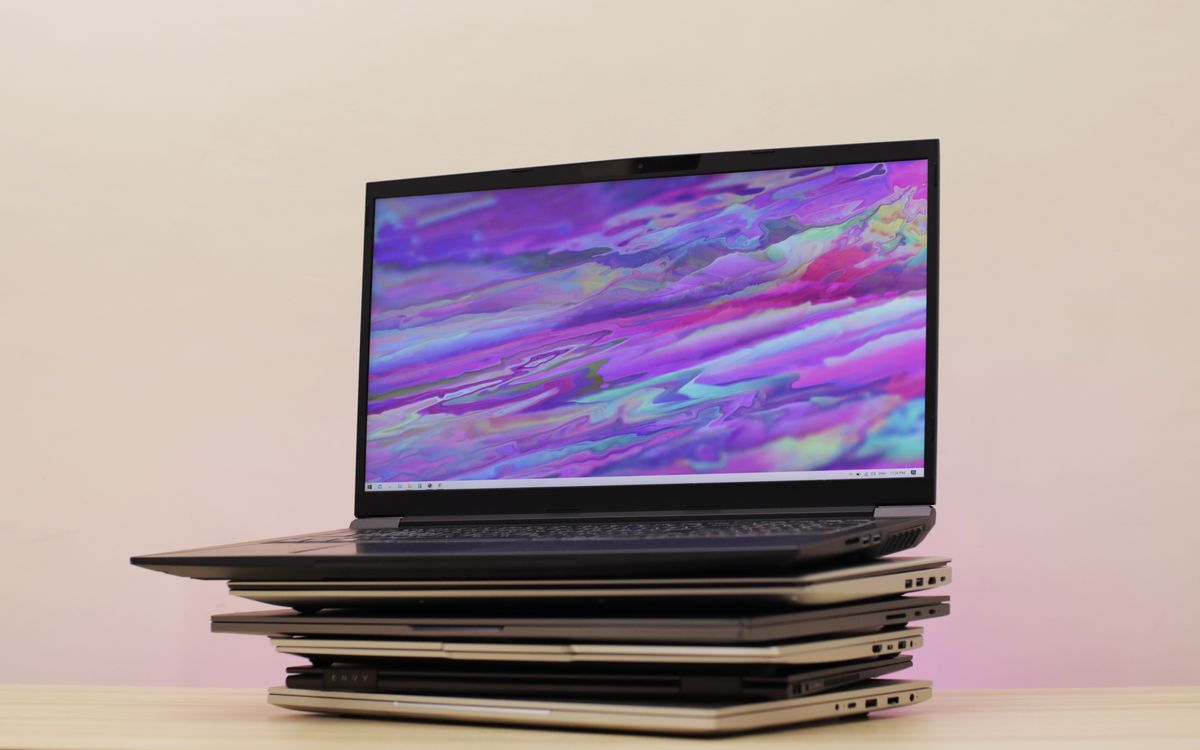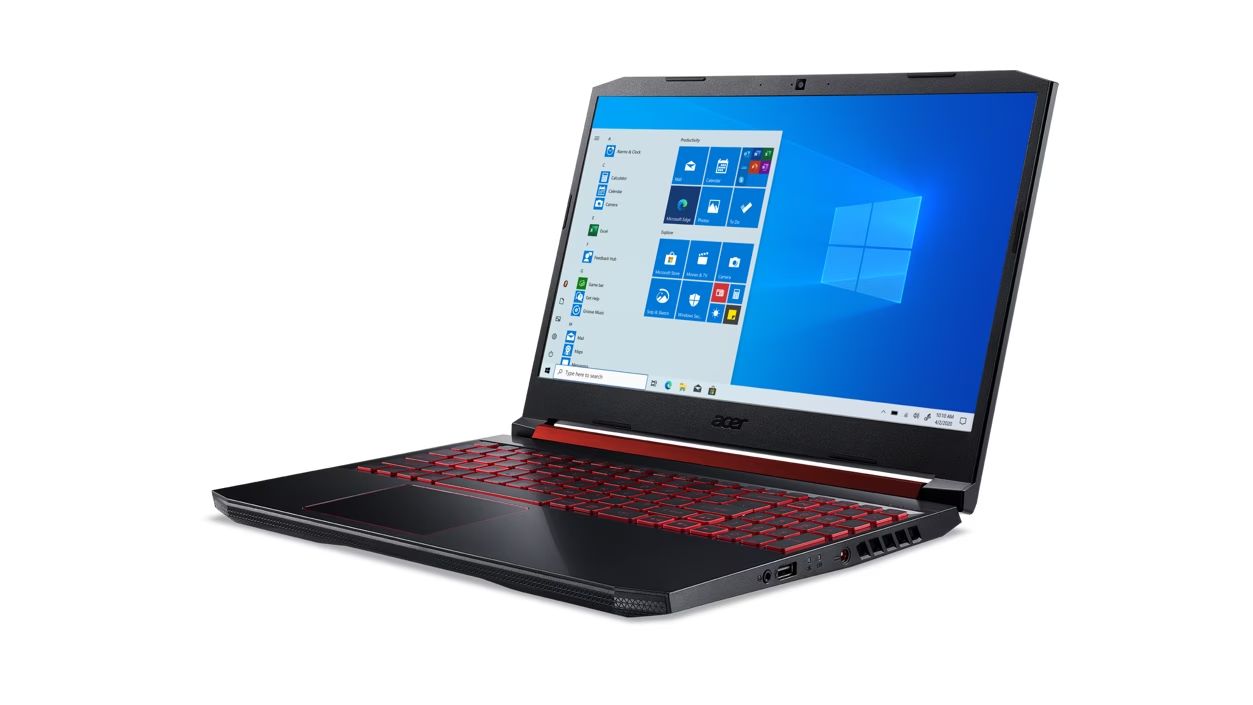Introduction
Choosing the right size for a gaming laptop is an important decision for any avid gamer. The size of the laptop can greatly impact the gaming experience, as it affects factors such as display quality, portability, and performance. With a wide range of sizes available in the market, it can be overwhelming to know which size is the best fit for your gaming needs. In this article, we will explore the different considerations when determining the optimal size for a gaming laptop.
Beyond just the physical dimensions, the size of a gaming laptop is often closely tied to various other factors that are crucial for an immersive gaming experience. These factors include the screen size, portability, performance, cooling, keyboard and trackpad quality, battery life, and price. By examining these different aspects, gamers can make an informed decision about the ideal size that suits their preferences and requirements.
It is essential to note that there is no one-size-fits-all answer to determine the perfect size for a gaming laptop. The optimal size will depend on individual preferences, gaming habits, and specific requirements. Some gamers may prioritize portability, while others may prioritize a larger display for a more immersive visual experience. Therefore, it is necessary to consider these various factors and weigh their importance to find the best size that aligns with your gaming preferences.
Throughout this article, we will delve into each of these factors in more detail to help you understand their significance and make an informed decision when choosing the size for your gaming laptop. Whether you are a casual gamer who enjoys playing on the go or a professional gamer who requires top-notch performance, read on to discover the factors that play a crucial role in deciding the ideal size for your gaming laptop.
Display Size
The display size of a gaming laptop is a significant aspect to consider when choosing the right size. A larger display offers a more immersive gaming experience, allowing you to see more detail in games and providing a wider field of view. Typically, gaming laptops come in sizes ranging from 13 inches to 17 inches, with 15-inch displays being the most common.
A 15-inch display strikes a good balance between portability and gaming experience. It provides a decent-sized screen that allows you to enjoy games without compromising too much on portability. However, if you prefer a more visually stunning experience and don’t mind sacrificing some portability, a 17-inch display might be the right choice. The larger screen size offers a more expansive view and enhances the vividness of the graphics, making it ideal for games with detailed environments.
On the other hand, if portability is a priority for you, a 13-inch or 14-inch display may be more suitable. These smaller display sizes make the laptop more compact and lightweight, making it easier to carry around. However, keep in mind that the smaller screen may limit the immersive feel of the gaming experience, as the visuals may not be as impactful or detailed.
Another important consideration when it comes to display size is the resolution. Higher resolution displays offer sharper and more detailed images, allowing you to see finer details in games. However, it is worth noting that higher resolution displays also require more powerful hardware to run games smoothly. Therefore, if you opt for a larger display with a higher resolution, make sure that your laptop is equipped with the necessary graphics capabilities to handle the demands of gaming at that resolution.
Ultimately, the display size you choose will depend on your personal preferences and requirements. Consider factors such as portability, visual immersion, and the power of your laptop when making your decision. By finding the right balance between size and performance, you can enhance your gaming experience and enjoy your favorite games to the fullest.
Portability
When selecting the size of a gaming laptop, portability is a crucial factor to consider. If you frequently travel or wish to take your gaming setup to different locations, a portable gaming laptop will be more convenient and practical.
A smaller-sized laptop, such as a 13-inch or 14-inch model, offers enhanced portability. These laptops are lightweight and compact, making them easy to carry in a backpack or travel bag. They are ideal for gamers who are always on the go or participate in LAN parties, as they allow for easy transportation without sacrificing performance.
On the other hand, if you prioritize a larger and more immersive gaming experience over portability, you may opt for a 15-inch or 17-inch gaming laptop. While these laptops may be bulkier and heavier, they often come with more powerful hardware and a larger display for an enhanced gaming experience.
It is important to note that larger gaming laptops can be more challenging to transport, especially if you need to carry them for extended periods or in crowded places. Additionally, bulkier laptops may not fit in smaller bags or have limited space in cramped environments, such as an airplane seat or a crowded café.
Consider your lifestyle and gaming habits when determining the ideal level of portability for your gaming laptop. If you will mainly use it at home or have a dedicated gaming setup, a larger laptop might be suitable. However, if you need a laptop that you can easily take with you wherever you go, prioritize a smaller and more portable option.
It’s worth noting that advancements in technology and design have made gaming laptops more portable than ever before. Some manufacturers have introduced innovative features, such as slim bezels and thinner profiles, to reduce the overall size and weight of their gaming laptops without compromising performance. Keep an eye out for these features when considering a gaming laptop for maximum portability.
Ultimately, the level of portability you value will depend on your individual needs and preferences. Balancing the desired gaming experience with the convenience of portability will help you find the right size for your gaming laptop.
Performance
Performance is a crucial factor to consider when determining the size of a gaming laptop. The size of the laptop can directly impact its performance capabilities, as it affects the cooling system, hardware components, and overall power of the device.
Larger gaming laptops often come equipped with more powerful hardware components, such as high-end processors and advanced graphics cards. These components allow for smoother gameplay, faster processing, and improved graphics quality. If you are a hardcore gamer and require high-performance capabilities for demanding games or professional gaming, a larger laptop may be the right choice for you.
However, it’s important to note that portability and performance can sometimes be at odds with each other. Smaller-sized gaming laptops may sacrifice some performance capabilities due to their compact form factor and limited space for cooling systems. While they can still handle most games, they may not deliver the same level of performance as larger laptops. Nonetheless, smaller gaming laptops are more than capable of running less demanding games and are suitable for casual gamers or those with limited space.
When considering performance, it’s crucial to also look at other factors such as the laptop’s cooling system. Gaming laptops, especially those with powerful hardware, can generate a significant amount of heat during gaming sessions. Larger laptops often have more space for cooling solutions such as larger fans or additional heat sinks, which can help dissipate heat more effectively and maintain optimal performance.
Another aspect to consider is the upgradeability of the laptop. Some larger gaming laptops offer more room for additional hardware upgrades, allowing you to improve the performance over time. While smaller laptops may have limited upgrade options, they are often designed with more power-efficient components to ensure maximum performance within their compact form factor.
Ultimately, the performance requirements for your gaming laptop should align with your gaming needs and preferences. If you prioritize top-of-the-line performance and are willing to sacrifice some portability, a larger gaming laptop with powerful hardware is the way to go. However, if you value portability and plan on gaming casually or with less demanding games, a smaller-sized laptop may be suitable.
By carefully considering your gaming habits, desired performance level, and future upgradeability, you can choose a gaming laptop size that offers an optimal balance of performance and portability for an immersive gaming experience.
Cooling
The cooling system of a gaming laptop is a critical factor to consider when it comes to performance and longevity. Gaming laptops tend to generate a substantial amount of heat due to their powerful hardware components, and a well-designed cooling system is essential to maintain optimal performance and prevent overheating.
Larger gaming laptops typically have more space for cooling solutions, such as larger fans or additional heat pipes. These larger cooling systems allow for better heat dissipation and airflow, keeping the internal components cool during intense gaming sessions. This helps to prevent throttling, where the system slows down performance to reduce heat generation, ensuring consistent and smooth gameplay.
Additionally, larger laptops often have more room for dedicated cooling technologies like vapor chambers or advanced cooling systems. These technologies are designed to efficiently transfer heat away from the critical components, helping to maintain optimal performance even during prolonged gaming sessions.
However, smaller gaming laptops can also feature well-designed cooling systems. Manufacturers have made significant advancements in cooling technology, incorporating compact yet effective cooling solutions. These smaller laptops may utilize high-performance fans, heat pipes, or even liquid cooling to keep the system cool and maintain performance despite their limited form factor.
When selecting a gaming laptop, it is important to consider the cooling capabilities of the laptop, regardless of its size. Look for laptops that have a well-designed cooling system with adequate heat dissipation and proper airflow. It is also recommended to read reviews and gather information about the cooling performance of the specific laptop model you are considering.
Additionally, proper maintenance and care can greatly enhance the cooling performance of a gaming laptop. Regularly cleaning the vents and fans to remove dust buildup can prevent overheating and improve airflow. Using a laptop cooling pad or stand can also help improve airflow and reduce heat buildup during gaming sessions.
Ultimately, the cooling system in a gaming laptop plays a vital role in maintaining performance and prolonging the lifespan of the device. By considering the cooling capabilities, regardless of the laptop’s size, you can ensure that your gaming laptop stays cool even during intense gaming sessions, allowing for optimal performance and a better overall gaming experience.
Keyboard and Trackpad
The keyboard and trackpad are essential components of a gaming laptop, as they directly impact the comfort and convenience of gameplay. When selecting the size of a gaming laptop, it is crucial to consider the quality and functionality of the keyboard and trackpad.
Smaller gaming laptops often have a compact keyboard layout, which may be a challenge for gamers with larger hands. The keys might be closer together, and some keys, such as the number pad, may be omitted or compressed to fit the smaller form factor. Gamers who prefer a more spacious and comfortable typing experience might consider opting for a larger laptop with a full-sized keyboard that includes additional features like customizable RGB lighting or macro keys.
On the other hand, smaller laptops might have more restricted space for the trackpad. This can lead to a smaller trackpad size or limited surface area for multitouch gestures. If you rely heavily on the trackpad for gaming or general usage, it is worth considering a larger laptop that has a more extensive and responsive trackpad. Alternatively, gamers who prefer precision and accuracy might use an external gaming mouse for better control and performance.
Furthermore, the quality of the keyboard and trackpad can vary among gaming laptops, regardless of size. Some laptops offer mechanical keyboards that provide a tactile and responsive typing experience, while others have membrane keyboards that offer a quieter typing experience. Similarly, trackpads can vary in terms of smoothness, responsiveness, and accuracy. Reading reviews and seeking opinions from fellow gamers can help you gauge the quality of the keyboard and trackpad of a specific laptop model.
Customization and additional features are also worth considering when it comes to the keyboard and trackpad. Some gaming laptops offer software that allows users to customize key bindings and lighting effects, enhancing the gaming experience and personalization. Additionally, laptops with precision trackpads or trackpads that support multitouch gestures can provide added convenience and functionality.
To sum it up, the size of a gaming laptop can impact the keyboard and trackpad experience. While larger laptops offer more spacious and comfortable keyboards, as well as larger trackpads, smaller laptops can still provide a satisfactory experience with compact layouts and responsive trackpads. Regardless of size, it is important to prioritize the quality, functionality, and customization options when considering the keyboard and trackpad of a gaming laptop.
Battery Life
Battery life is a vital consideration when choosing the size of a gaming laptop, especially if you plan on using it on the go or in situations where a power outlet may not be readily available. The size of the laptop can have a significant impact on its battery life.
Larger gaming laptops often have room for a larger battery, allowing for longer battery life. These laptops can provide extended gaming sessions or continuous usage before needing to recharge. This can be particularly beneficial for gamers who frequently travel or attend gaming events where access to power outlets may be limited.
On the other hand, smaller gaming laptops generally have smaller batteries due to their compact form factor. This results in shorter battery life compared to larger laptops. While this may be a disadvantage in terms of gaming on the go, smaller laptops are generally more power-efficient and can still provide a sufficient amount of battery life for everyday tasks or casual gaming sessions.
It’s important to note that gaming consumes a significant amount of power and can drain the battery rapidly, regardless of the laptop’s size. To maximize battery life, consider adjusting the power settings of the laptop, reducing screen brightness, and closing unnecessary applications or processes running in the background. Using power-saving modes, such as battery saver or eco mode, can also help prolong battery life.
Furthermore, advancements in technology have allowed for more efficient power management in gaming laptops. Some laptops come with features like NVIDIA Optimus, which automatically switches between dedicated and integrated graphics depending on the task at hand. This helps to conserve battery life during less demanding tasks or non-gaming usage.
Ultimately, the ideal battery life for a gaming laptop depends on your usage patterns and requirements. If you mainly game at home or have access to power outlets, a shorter battery life may not be a significant concern. However, if you prioritize gaming on the go or in situations where power outlets are scarce, a larger laptop with a longer battery life would be a better choice.
Considering your gaming habits, travel frequency, and the availability of power sources will help you determine the optimal battery life required from your gaming laptop, regardless of its size.
Price
Price is an important factor to consider when choosing the size of a gaming laptop. Different sizes of laptops come with varying price tags, and your budget will significantly influence your options.
Generally, smaller gaming laptops tend to be more affordable compared to their larger counterparts. The compact form factor allows for cost savings in terms of materials, components, and manufacturing. If you are on a tighter budget or prefer a more cost-effective option, a smaller laptop may be the way to go.
On the other hand, larger gaming laptops often come with higher price tags due to their larger displays, more powerful hardware, and additional features. If you are willing to invest more in your gaming experience or require top-notch performance for demanding games, a larger laptop with a higher price point may be the right choice for you.
It is important to carefully consider your gaming needs and budget when determining the ideal balance between size and price. Prioritize the features and specifications that are essential to your gaming experience, such as display quality, performance, and cooling capabilities. Make a list of the must-have features and compare them against the available options within your budget range.
Additionally, keep an eye out for special promotions, discounts, or seasonal sales that may present an opportunity to purchase a gaming laptop at a lower price. Comparing prices across different retailers or considering refurbished or older models can also help you find a gaming laptop that fits within your budget without compromising too much on performance.
While price is certainly an important consideration, it is also crucial to remember that investing in a gaming laptop is a long-term decision. A high-quality gaming laptop, regardless of its size, can last for several years and provide an enjoyable gaming experience. Therefore, it is worth considering the value and long-term benefits when making your purchasing decision.
Ultimately, striking a balance between size and price is crucial when choosing a gaming laptop. By considering your budget and prioritizing the features that are most important to you, you can find a gaming laptop that offers the best value for your money.
Conclusion
Choosing the right size for a gaming laptop is a personal decision that depends on a variety of factors. Each size has its own advantages and considerations that can significantly impact your gaming experience. By considering the display size, portability, performance, cooling, keyboard and trackpad, battery life, and price, you can make an informed decision that aligns with your gaming needs and preferences.
The display size plays a crucial role in the immersiveness of your gaming experience. Larger displays offer a wider field of view and more detailed visuals, while smaller displays prioritize portability. Consider your gaming preferences and prioritize the size that allows you to enjoy games to the fullest.
Portability is an important consideration for gamers who are often on the go. Smaller laptops are more lightweight and compact, making them easier to transport. Larger laptops offer more powerful hardware and better gaming experiences but sacrifice some portability.
Performance is vital for gamers who demand seamless gameplay. Larger laptops typically host more powerful hardware, enabling better performance. Smaller laptops may have limitations in terms of capability but can still handle less demanding games and are ideal for casual gamers.
Cooling is essential for preventing overheating and ensuring optimal performance. Larger laptops often have more space for efficient cooling systems, although smaller laptops can also incorporate advanced cooling technologies to maintain performance.
The keyboard and trackpad should be comfortable and functional. Larger laptops offer more spacious keyboards, while smaller laptops are more compact. Trackpad size and quality can also differ, so consider your preferences and usage patterns.
Battery life is critical, particularly for gamers who need to use their laptops away from power outlets. Larger laptops tend to provide more extended battery life, while smaller laptops are generally more power efficient.
Price is a crucial factor that impacts your options. Smaller laptops tend to be more affordable, while larger laptops with higher performance capabilities come with higher price tags. Consider your budget and prioritize the features that matter most to you.
In conclusion, there is no definitive “best” size for a gaming laptop. It all comes down to your personal preferences, gaming habits, and specific requirements. By considering the various factors discussed in this article, you can determine the size that suits your needs and enhances your gaming experience. Whether you prioritize display size, portability, performance, cooling, keyboard and trackpad comfort, battery life, or price, finding the right balance will enable you to enjoy gaming to the fullest extent.











